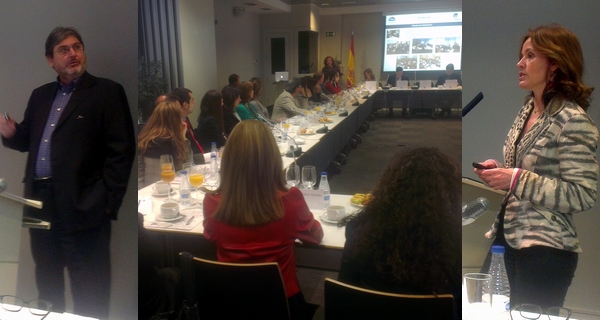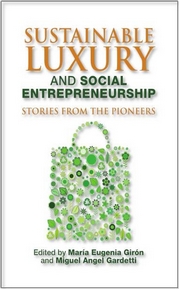interview with Teresa Serra
Last March 11th, IE Business School celebrated the breakfast meeting “Brand as an engine for loyalty” with the participation of Gonzalo Brujó, Chairman of Interbrand Latin America & Iberia, Laura Fontanet, Brand and External Communication for Leroy Merlin, and José Luis Melero, Client Services Director of TNS. Teresa Serra, Chair Director, welcomed the participants and Santiago Perez, General Director of Air Miles closed the event. The speeches were followed by a dynamic discussion with all the attendees. |
|
Are brands born to build loyalty?
If we understand loyalty as creating a bond with customers, of course brands do that. When we talk about products and brands, we always say that both products and their purely functional characteristics do not connect with customers while brands -which reflect not only functional attributes but emotional and self-expression benefits- are the ones that really get this bond with customers. This is what justifies the fundamental role that brands play in commercial strategy and the value they represent as one of the main actives for companies.
Is it possible to build loyalty without a brand?
It is very difficult. It would only be possible to try and build loyalty without a brand in full commodity-oriented categories and, even so, the price would be a key factor so there would always exist the threat of lower-price competitors. What we have to take into account is that all kind of companies compete for the loyalty of the customers. For instance, if we talk about stores, they will try to make the customer loyal to the establishment while brands try to get customers to be loyal to them. The current fight is to win over the customer's head and heart, and this is where brands play a very important role.
In the meeting, the luxury industry was named as one of the industries that knows how to do it well. Do you agree? What does this sector do that others could learn from?
The luxury sector is a clear example of how bonding with brand values not only makes the customer feel special but it also says something about them. Luxury brands have that aspirational feature that makes them an object of desire. What luxury industry does when it licenses their brand to more affordable products for a wider audience is to look for that long-term bond between the customer and the brand.
In terms of loyalty, what is the measure of success?
There are many aspects that we can use to measure the efficiency of loyalty. We can measure the behavior of a loyal customer to determine, for instance, the length of their relationship with the brand, the amount and frequency of purchases, their price sensibility, et cetera. We can also measure the effect of loyalty in the income statement analyzing the profitability that comes from a loyal customer and comparing it to the profitability that comes from a non-loyal one using tools like the Customer Lifetime Value, among others. Besides, a loyal customer has a very important value -although it is difficult to measure it- that is becoming prescribers of the brand.
|










